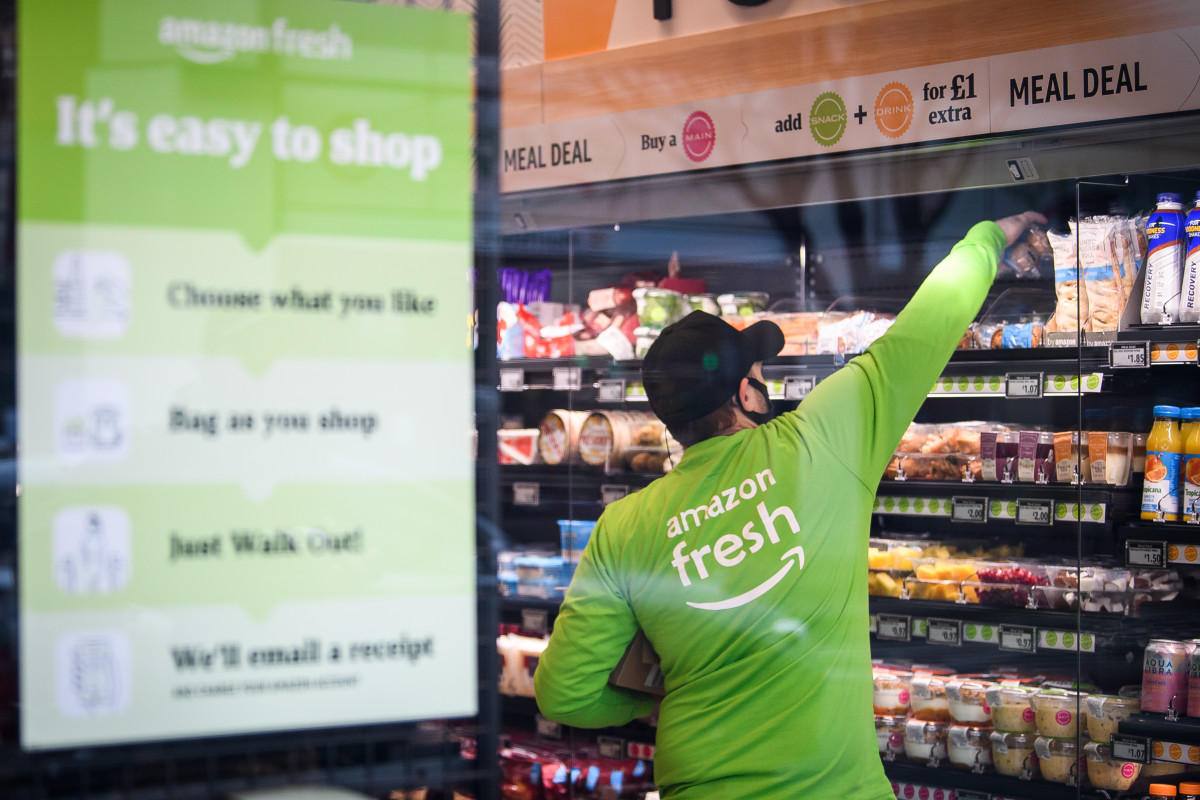
Few consumers roll through grocery aisles thinking about the store’s carbon energy levels.
After all, shoppers are only there to pick up some orange juice, bread, ground beef, and other grocery items. It’s a chore and like any chore, the object is to cross it off the list and move on.
Related: Amazon Primes Itself to Take on a Fresh New Market
Amazon wants you to think about the grocery store experience in a different way and that process starts with the retail giant’s first-ever zero-carbon Amazon Fresh store in Seattle. The zero carbon certification comes from the International Living Future Institute, which tracks and grades buildings on their energy efficiency.
Amazon’s 35,000-square-foot Seattle store, which opened in 2022, is the first grocery store to receive the ILFI certification, which requires the building to meet the following energy standards before being certified, according to the institute.
More Retail:
- ‘Too pretty’ Home Depot worker faces backlash after viral mirror post
- A classic kitchenware brand files for Chapter 11 bankruptcy
- Who’s running The Gap? With no CEO, retailer hurtles towards crisis
“100 percent of the operational energy use associated with the project must be offset by new on-or-off site renewable energy, the ILIFI stated on its website. “100 percent of the embodied carbon emissions impacts associated with the construction and materials of the project must be disclosed and offset.”
The Seattle Amazon Fresh store meets those mandates and more. In doing so, customers visiting the location should immediately recognize the changes.
For instance, the store includes a natural-refrigeration-based product chilling system, EV-charging for customers, 100% electric kitchens, and hot-water systems. In the aisles, customers can choose from Amazon-certified (it’s on the product label) climate-friendly foods, drinks, paper products, and cleaning, health and beauty products.
In other ways, Amazon Fresh shoppers may not realize they’re in a zero-carbon store at all.
The Aurora Avenue store in North Seattle, for example, features low-carbon concrete floors that look, feel, and walk like any grocery store floor. Yet in building it that way, Amazon has saved over 100 tons of carbon dioxide equivalent (CO2e) relative to traditionally built grocery stores.
Amazon says it's determined to have all of its buildings meet zero carbon energy standards.
“We’re building a best-in-class grocery shopping experience, and part of that is bringing customers more sustainable options across our stores,” said Amazon worldwide grocery store vice president Tony Hoggett in an Oct. 12 blog post. “Enacting initiatives that support Amazon’s commitment to be net-zero carbon by 2040, like the Zero Carbon Certification, are a win for our planet.”
The retailer says three of its Southern California stores are “on track” to also meet the ILFI’s carbon zero mandate, but did not specify a certification date.
Get exclusive access to portfolio managers and their proven investing strategies with Real Money Pro. Get started now.







